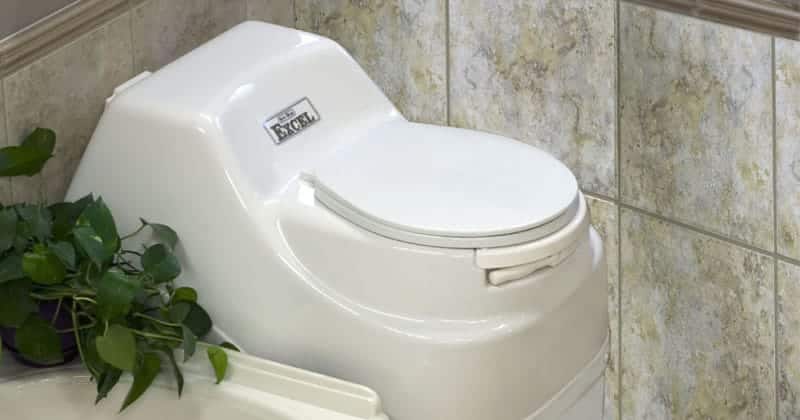A composting toilet works off the same basic principle as a compost pile, which is by reducing waste through a natural process of decomposition and evaporation. It does not utilize water, but instead separates liquid waste and solid waste, mostly by uses of slope and gravity. A composting toilet ventilates to allow oxygen to enter the composting chamber to preserve the organisms inside, but also to allow the odors to enter the environment. But why would people use these, and what sorts of things should they be aware of when doing so? Let’s look at some pros and cons of composting toilets.

Pros of Composting Toilets:
● Eco-Friendly. Composting toilets have a net-zero effect on the environment. They conserve water by not using water for decomposing. For perspective, an average family could be using an average of 9,000 gallons of water from flushing alone per year. The solid waste byproduct can, to some extent, be used as fertilizer, helping to improve plant growth.
● Easy to Maintain. There are fewer moving parts to a composting toilet. Therefore there is inherently less that can go wrong. This is not to say that there can be no maintenance issues, such as those involved with removing the waste from the collection chamber, but by letting nature do most of the work, a composting toilet is a much smaller problem entity.
● Cost-Effective. The cost of installing a composting toilet is significantly less expensive than installing and doing the plumbing for a real one. Even if you are replacing a regular toilet with a composting one, water savings will offset the cost of the conversion.
● Small Space Usage. Some smaller houses or shacks have very little space to work with. Rather than the large installation of a full bathroom, a tiny compact composting toilet is an excellent option for using up minimal space yet achieving an every-house need. But a word of caution, the lack of plumbing is most of the space savings, and the components needed to manage the waste without it, could still take up space.
Cons of Composting Toilet:
● Odors. The most obvious problem with a system where the water does not help dispose of, flush away or decompose the waste, is that the byproduct stays around. After all, this is still human waste, and there will be an apparent olfactory dilemma. There are ways to mitigate the smells, such as adding eco-friendly scented products, and a compartmentalized system that can be employed to separate and better vent the waste. Still, there is no getting around the fact that a compost toilet will smell worse than a regular one.
● Not Practical Everywhere. Composting toilets are not ideal or even practical in all environments, but rather only certain ones. These would not be practical in a multifamily home or an urban environment, for example.
● May Require Special Permits. In places where composting toilets are a feasible option, local codes will still require certain aspects of this design to be done in a particular manner.
- Tulip Mania – The Story of One of History’s Worst Financial Bubbles - May 15, 2022
- The True Story of Rapunzel - February 22, 2022
- The Blue Fugates: A Kentucky Family Born with Blue Skin - August 17, 2021